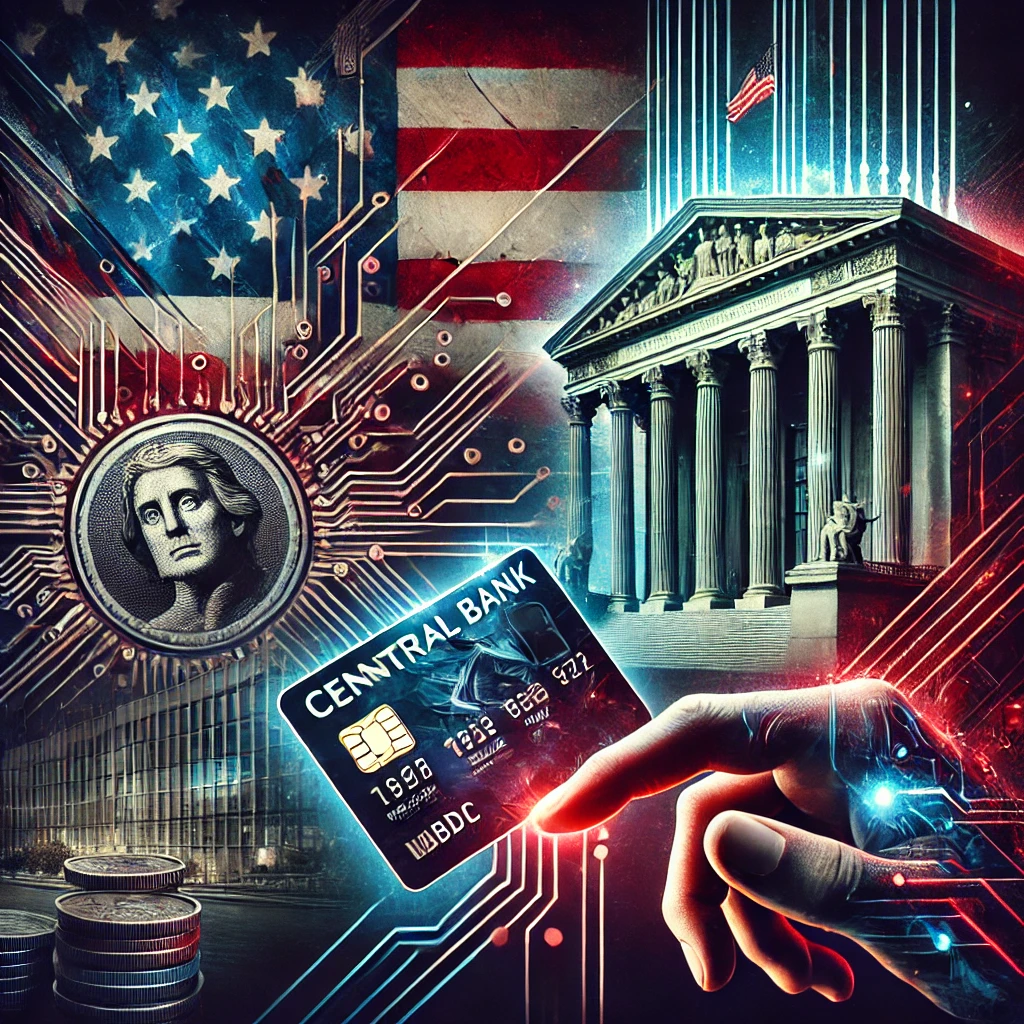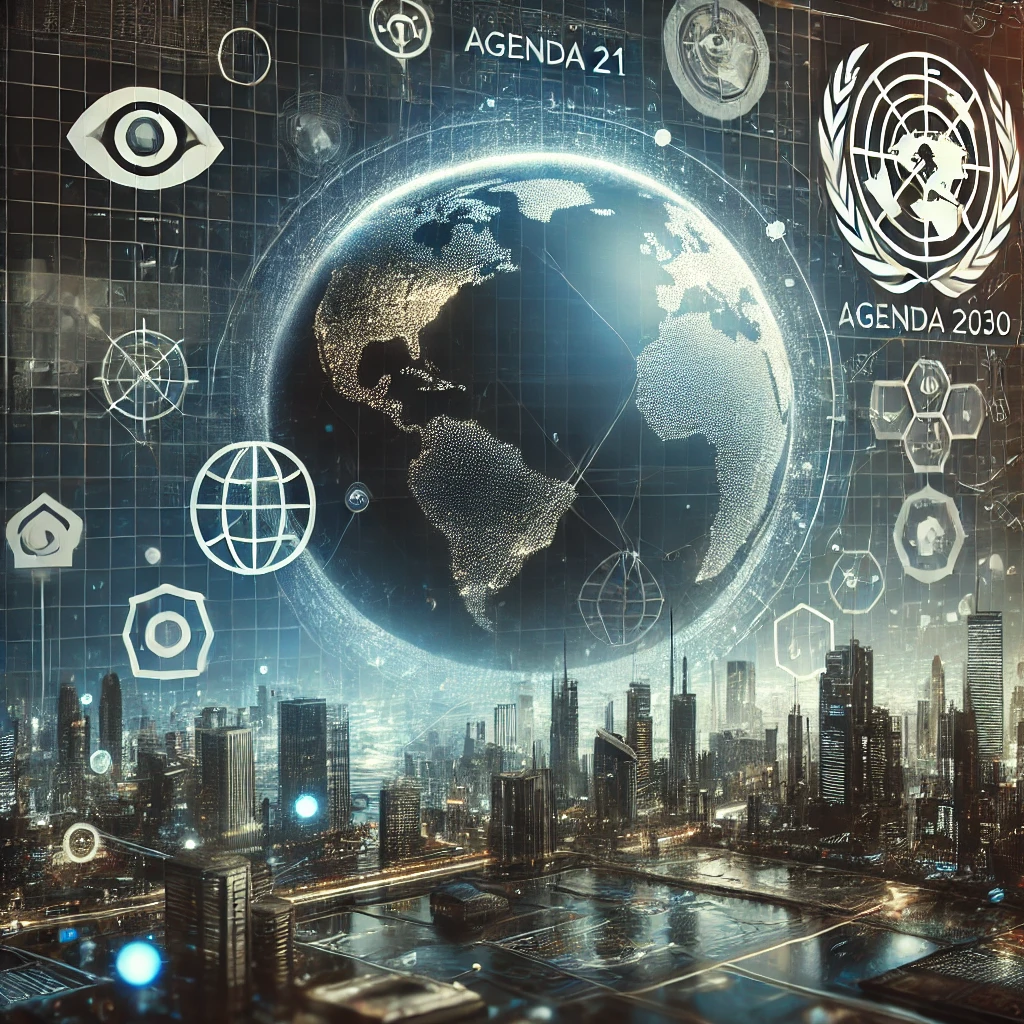The message is being hammered into the public consciousness: America is going bankrupt, and the social and economic systems we rely on are crumbling. In this climate of fear, solutions are being dangled before us—Central Bank Digital Currency (CBDC), Digital IDs, and even Voter ID laws. While these measures are marketed as necessary reforms, they could fundamentally alter the balance of power between the people and the state.
The Financial Crisis Narrative: A Gateway to CBDCs
The narrative of impending financial collapse has become a rallying cry. Debt ceilings, inflation, and economic instability dominate the headlines. In the shadow of these crises, CBDCs are being positioned as the answer. These centralized, government-controlled digital currencies promise efficiency, transparency, and accountability. However, critics argue that their real purpose is to centralize control over personal finances.
CBDCs could pave the way for unprecedented government oversight of individual spending. Every transaction would be traceable, taxable, and potentially subject to restrictions. This system aligns with broader goals of surveillance and control, making personal autonomy in financial matters a thing of the past.
Immigration Panic and the Rise of Digital IDs
Mass immigration has long been a polarizing issue in the United States. However, beyond the usual debates about labor markets and humanitarian obligations, there’s a strategic dimension to this crisis. By amplifying fears about crime, resource allocation, and national identity, the stage is set for the introduction of Digital IDs.
- Digital IDs could be required for access to basic services like healthcare, education, and housing.
- They could become mandatory for banking and financial transactions, especially in a world dominated by CBDCs.
- Their scope could easily extend to monitoring and controlling citizens’ movements and activities.
For those concerned about privacy and freedom, Digital IDs represent a slippery slope to mass surveillance.
Election Fraud and Voter ID: Controlling the Ballot Box
In tandem with the push for Digital IDs, election integrity has become a focal point of political discourse. Claims of election fraud have fueled calls for stricter Voter ID laws, often justified as necessary to prevent illegal voting. While ensuring secure elections is undeniably important, the proposed solutions could be weaponized for control.
- Voter ID laws could require Digital IDs, effectively tying the right to vote to a government-controlled identification system.
- Allegations of fraud create an opening to overhaul election systems, centralizing their management under the guise of preventing interference.
- The combination of Digital IDs and CBDCs could limit individuals’ ability to support political campaigns or causes that oppose government agendas.
Critics warn that these measures risk disenfranchising vulnerable populations while consolidating state power over the democratic process.
Fear as a Catalyst for Control
The pattern is clear: crises create fear, and fear paves the way for solutions that expand government control. Whether it’s the economy, immigration, or election security, the same cycle repeats:
- Manufactured or amplified crises generate public panic.
- The government introduces “solutions” that increase surveillance and reduce individual freedoms.
- These solutions become entrenched, shifting the balance of power away from the people.
CBDCs, Digital IDs, and Voter ID laws might seem like separate issues, but together, they form a powerful system of control.
What’s at Stake?
The introduction of these measures could redefine what it means to participate in a free society. Privacy, autonomy, and the right to dissent are all at risk. Here’s what we can do to resist:
- Demand transparency: Insist on open debates and clear explanations for proposed reforms.
- Question narratives: Recognize fear tactics and consider who benefits from the proposed solutions.
- Advocate for alternatives: Support decentralized systems and community-driven solutions that prioritize individual rights.
- Engage in the democratic process: Make your voice heard to ensure that reforms address real problems without infringing on freedoms.
America’s challenges—economic instability, immigration, and election integrity—are significant, but the solutions must be carefully scrutinized. In the race to address these issues, we risk losing sight of what makes democracy resilient: the balance between security and liberty. Stay informed, stay engaged, and demand solutions that empower people, not systems of control.
Discover more from Kango Anywhere
Subscribe to get the latest posts sent to your email.



